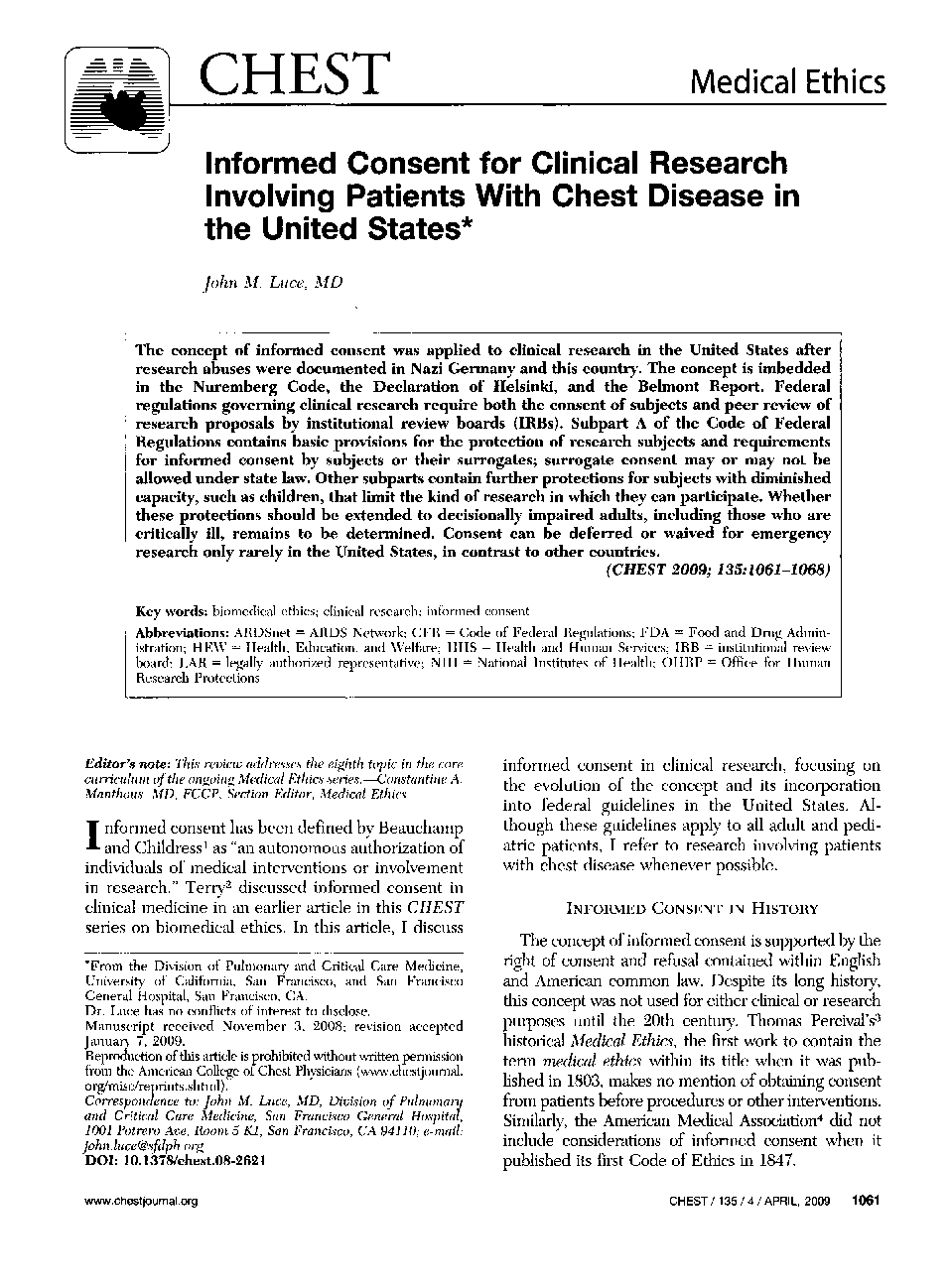| Article ID | Journal | Published Year | Pages | File Type |
|---|---|---|---|---|
| 2903634 | Chest | 2009 | 8 Pages |
The concept of informed consent was applied to clinical research in the United States after research abuses were documented in Nazi Germany and this country. The concept is imbedded in the Nuremberg Code, the Declaration of Helsinki, and the Belmont Report. Federal regulations governing clinical research require both the consent of subjects and peer review of research proposals by institutional review boards. Subpart A of the Code of Federal Regulations contains basic provisions for the protection of research subjects and requirements for informed consent by subjects or their surrogates; surrogate consent may or may not be allowed under state law. Other subparts contain further protections for subjects with diminished capacity, such as children, that limit the kind of research in which they can participate. Whether these protections should be extended to decisionally impaired adults, including those who are critically ill, remains to be determined. Consent can be deferred or waived for emergency research only rarely in the United States, in contrast to other countries.
